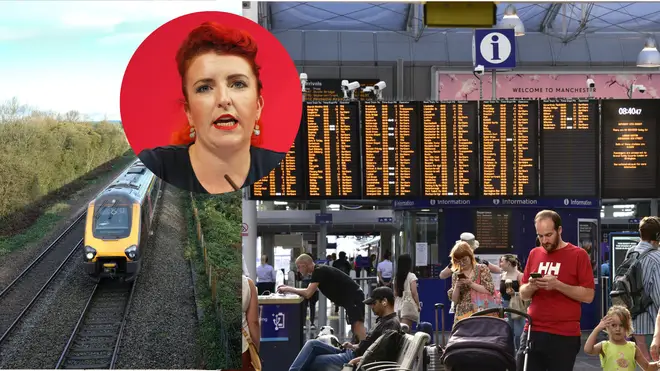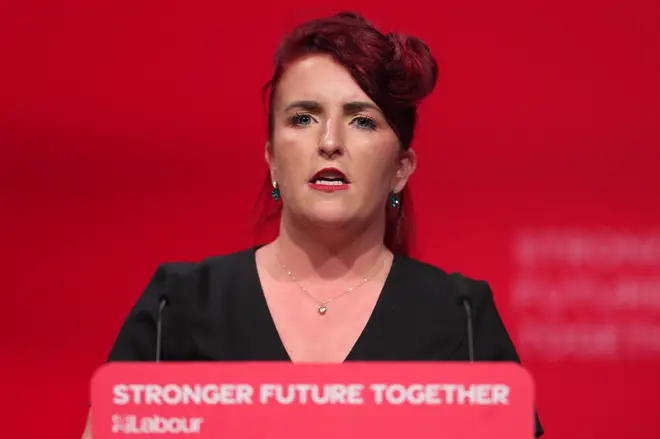
Oli Dugmore 4am - 7am
26 September 2022, 13:39 | Updated: 26 September 2022, 15:39

Labour has vowed to nationalise the railway ‘as a number one priority’ to end the ‘shambles’ of cancelled trains, overcrowding and ‘record delays’.
Labour has vowed to privatise the railway ‘as a number one priority’ to end the ‘shambles’ of cancelled trains, overcrowding and ‘record delays’.
Speaking at the Labour conference in Liverpool, the shadow secretary for Transport, Louise Haigh said: “We have a system where the public have come last for too long.”
Trains connecting major cities have been ‘slashed without warning’ leaving members of the public ‘let down’ by a system they ‘cannot or will not use’.
Ms Haigh has promised ‘lower fares and more reliable services’ to reverse the ‘spiral of decline’.
READ MORE: Liz Truss facing backlash from cabinet over plans to loosen immigration rules
READ MORE: Pound falls to all-time low as Kwasi Kwarteng hints further tax cuts on way
Her speech comes after the summer of chaos with railway workers walking out of work after ongoing disputes over pay, working conditions and threatened redundancies.

She told the conference: “No other country in the developed world allows private bus operators the power they enjoy here – to pick what routes they want and charge passengers whatever they wish.
“Entire communities cut off by decisions taken far away from the people they affect. 5,000 bus services slashed nationwide since the Conservatives came to power. Fares have risen twice as fast as wages. And who relies on buses more than anyone else – the poorest in society.
“This cannot go on, things must change.”
She said if this continues then the target to be net zero by 2050 will ‘simply’ not be met because people will stop using public transport.